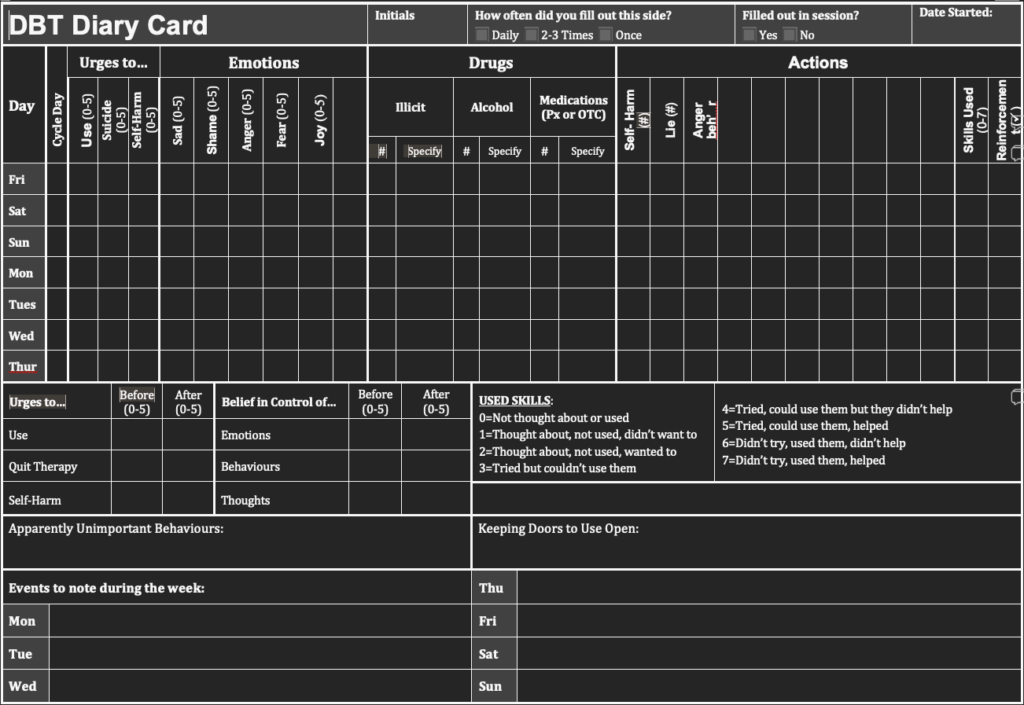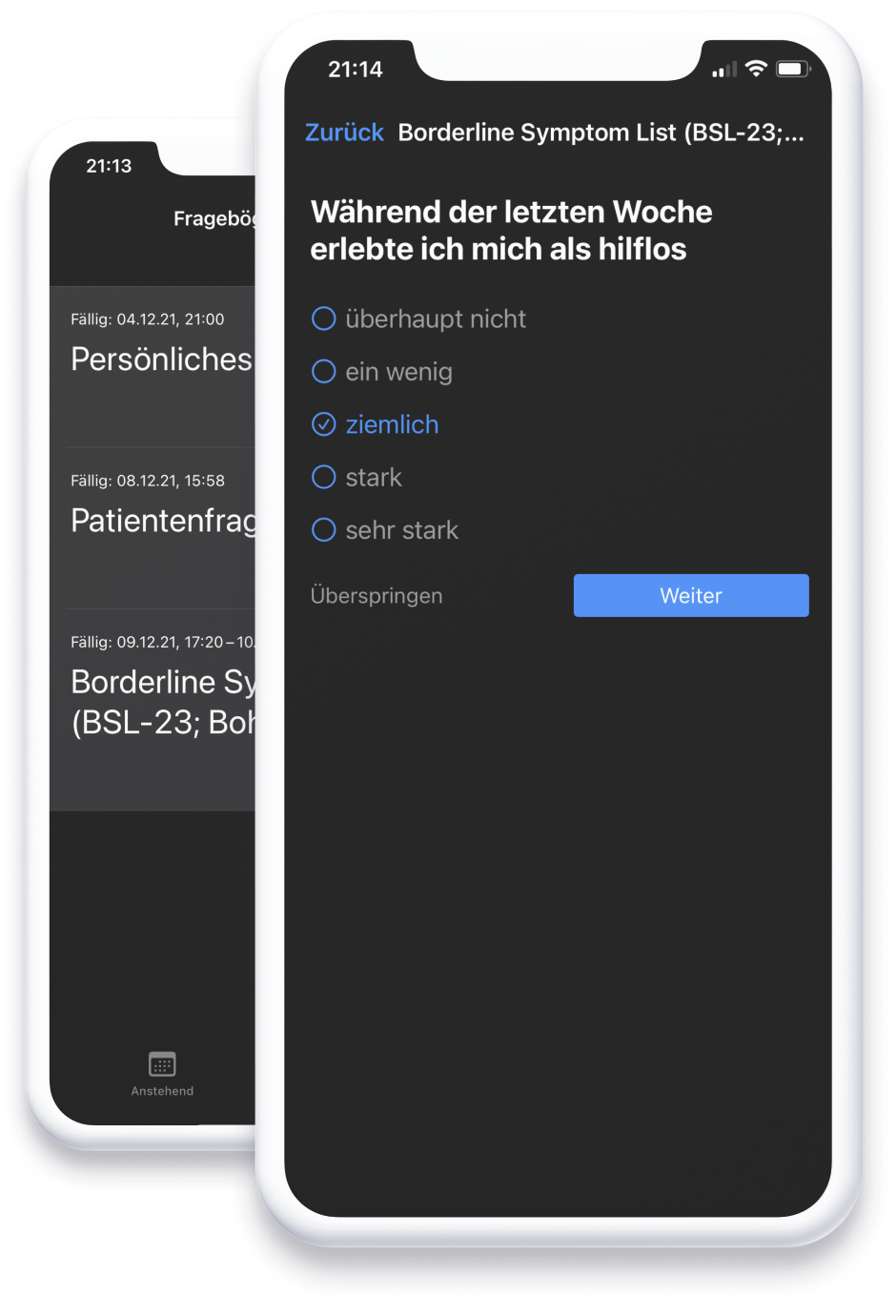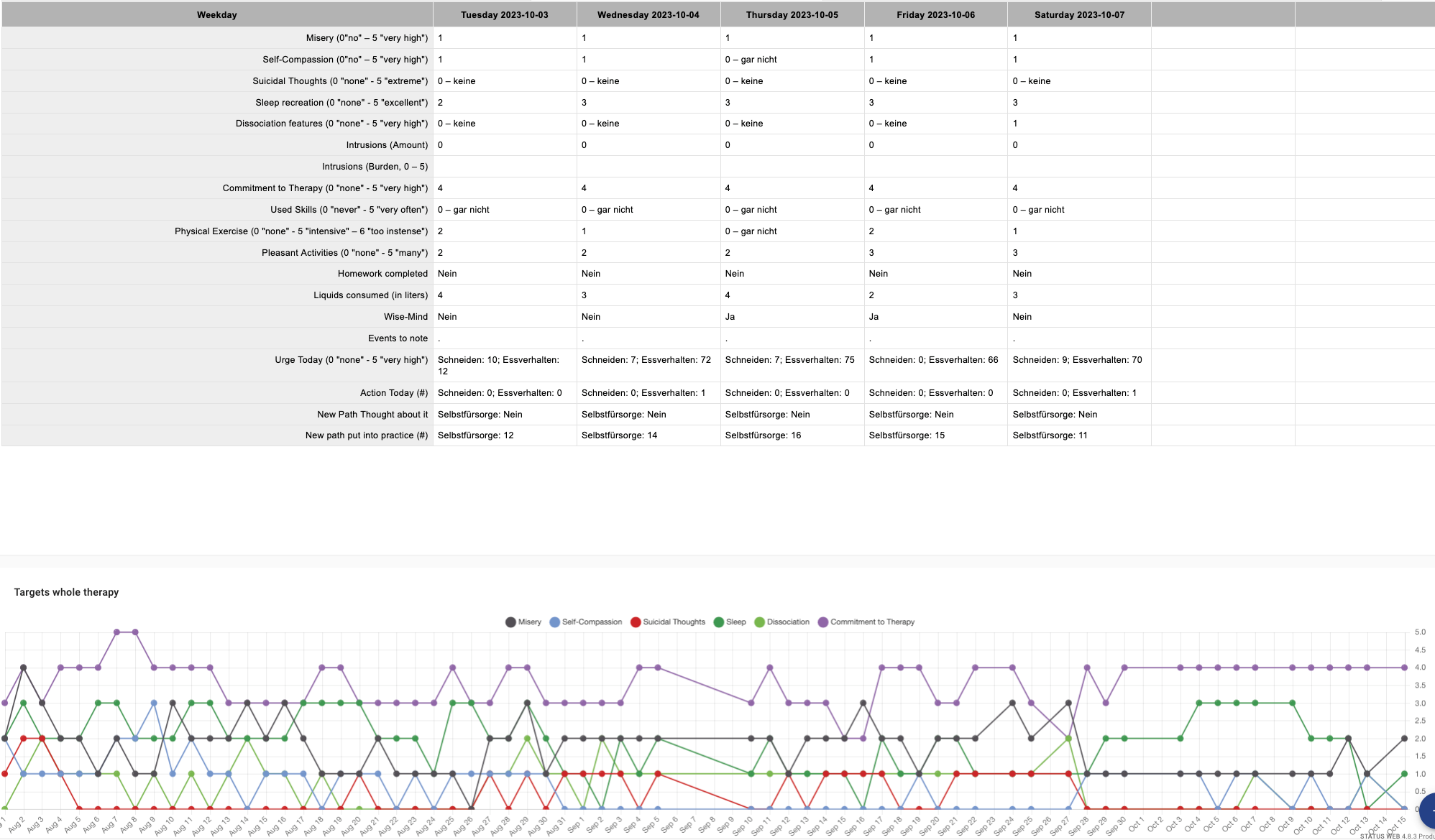Introduction
In the rapidly evolving landscape of mental health treatment, digital innovations are playing a pivotal role in increasing accessibility by allowing clients to conveniently track their progress and engage in therapy outside of traditional office settings, enhancing efficiency through automated reminders and real-time data collection, and improving effectiveness by providing therapists with valuable insights into clients’ behaviors and emotions over time. One such innovation is the utilization of smartphone-based diary cards in dialectical-behavioral therapy (DBT), a prominent and extensively researched approach to psychotherapy (1).
This white paper explores the significance of diary cards, their widespread popularity, and the transformation brought about by digitization, exemplified by Vacay GmbH’s collaboration with the Central Institute of Mental Health Mannheim (CIMH).
Diary cards serve as an essential tool in DBT. These cards allow individuals to record their thoughts, emotions, behaviors, and therapeutic exercises throughout the day. The popularity of diary cards lies in their effectiveness in tracking and analyzing emotional responses, which is fundamental in DBT (2).

Diary cards are not mere data collection tools; they play a central role in DBT therapy sessions. Patients and therapists use diary cards to examine emotional patterns, triggers, and coping strategies collaboratively. However, traditional paper-based diary cards have limitations.
Recognizing the potential for improvement, Vacay GmbH collaborated with the CIMH to digitize diary cards. This transformation brought about several key improvements:

Step-by-Step Guide

The Vacay digital diary card seamlessly integrates with Morpheus, an app designed for dialectical-behavioral therapy. Morpheus assists patients in managing dissociation during self-management by recording therapy exposure sessions and offering stress-regulating mini-games. Together, these two tools make psychotherapy more effective and reduce paperwork burdens (4).
As Vacay continues its commitment to advancing mental health treatment, future steps include:
To implement this innovative tool in your clinic or practice:
The digitization of diary cards in DBT represents a significant leap forward in mental health treatment. By enhancing efficiency, accessibility, and data analysis, Vacay GmbH’s partnership with CIMH has set a new standard for therapy support. Embracing these digital methods can empower clinicians, benefit patients, and contribute to the advancement of psychotherapy as a whole.
Building on these advancements, the advantages of digital DBT diary cards over paper-based ones are evident:
Real-time Accessibility: Through digital diary cards, patients can instantly record and update their entries, fostering continuous engagement with therapy and enabling immediate feedback from therapists.
Effortless Organization: Digital diary cards eliminate the need for managing physical paperwork, streamlining the process for both patients and therapists while reducing the risk of loss or misplacement.
Enhanced Data Analysis: By automatically aggregating and visualizing trends and patterns in emotional responses over time, digital diary cards empower therapists to identify progress, triggers, and areas for intervention more efficiently, leading to more personalized and effective treatment plans.
For more information on implementing digital diary cards in your practice or to explore Vacay’s innovative solutions, please visit our website or contact our team.